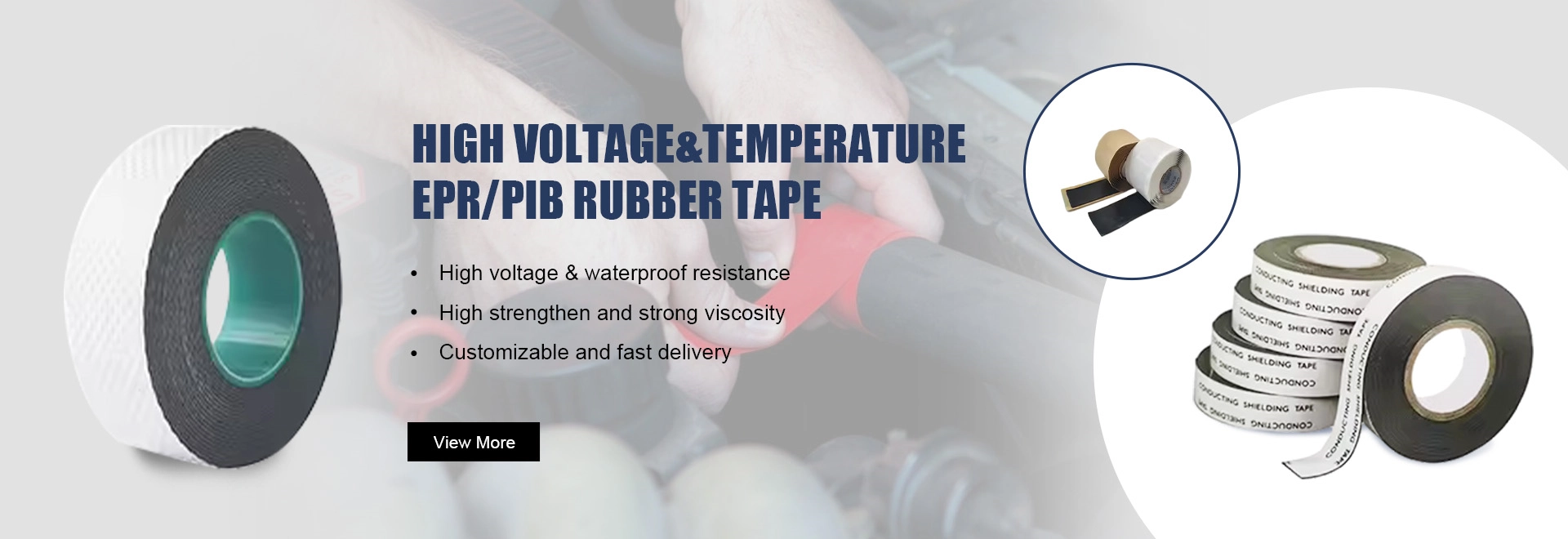The Versatility of Rubber Tape A Comprehensive Guide
Rubber tape, a specially designed adhesive tape, has gained significant popularity in various applications due to its remarkable properties and versatility. Made primarily from high-quality rubber, this type of tape is not only known for its strong adhesive qualities but also for its ability to provide insulation, sealing, and protection in diverse environments. This article explores the characteristics, applications, and advantages of rubber tape, highlighting why it has become a go-to choice for professionals and DIY enthusiasts alike.
Characteristics of Rubber Tape
Rubber tape is distinguished by its unique composition and features. The tape is generally thick and pliable, allowing it to conform easily to different surfaces and shapes. One of its most notable characteristics is its excellent adhesive strength, which enables it to stick firmly to a wide variety of materials, including metal, wood, plastic, and glass. Additionally, rubber tape is often resistant to water, heat, and chemicals, making it suitable for both indoor and outdoor use.
Another important aspect of rubber tape is its elasticity. The stretchable nature of the tape allows it to provide a tight seal that can accommodate movements, expansions, or contractions of the materials it's applied to. This property is particularly beneficial in electrical and plumbing applications, where vibrations or temperature fluctuations may occur.
Applications of Rubber Tape
The applications of rubber tape are vast, spanning multiple industries. In electrical work, rubber tape is frequently used for insulating wires and cables. Its ability to provide a secure and water-resistant seal helps prevent electrical shorts and reduces the risk of accidents. Many electricians prefer rubber tape over traditional electrical tape due to its superior insulating properties and durability.
rubber tape

In plumbing, rubber tape is often used to seal leaks. It can wrap around pipes to provide a watertight seal that prevents leaks from worsening. The tape’s ability to withstand moisture and temperature changes makes it an excellent choice for both residential and industrial plumbing tasks.
Additionally, rubber tape is utilized in automotive and aerospace applications. It can be used for insulating wiring, securing hoses, or even wrapping tools to improve grip and safety. Its compatibility with high-temperature conditions makes rubber tape an invaluable asset in environments where heat resistance is critical.
Furthermore, rubber tape can also be found in the craft and hobby sector. Crafters often use it for projects that require strong adhesion and flexibility, such as scrapbooking, model making, or even home décor.
Advantages of Rubber Tape
The distinct advantages of rubber tape make it a preferred choice in many situations. First and foremost, its exceptional adhesive strength ensures that it can securely hold materials together, making it reliable for long-term use. Its resistance to environmental factors, including moisture, heat, and chemicals, enhances its durability, allowing it to perform effectively even in challenging conditions.
Moreover, rubber tape is easy to use. It can be torn by hand, allowing for quick application without the need for scissors or cutting tools. The tape is also available in various widths and lengths, catering to different project requirements.
In conclusion, rubber tape is a versatile and indispensable tool across various fields. Its unique characteristics, numerous applications, and undeniable advantages make it an ideal choice for professionals in electrical, plumbing, automotive, and crafting industries. As technology advances, the formulation of rubber tape continues to improve, further expanding its potential uses and solidifying its position as a reliable adhesive solution. Whether you're tackling a simple home repair or a complex industrial task, rubber tape is sure to deliver the performance and reliability you need.
-
XIANGFAN Rubber Tape-Ultimate Solutions for All Your Insulation NeedsNewsJun.24,2025
-
XIANGFAN Rubber Tape-Protection for Industrial and Residential ApplicationsNewsJun.24,2025
-
XIANGFAN Rubber Tape: Superior Safety and Sealing for Demanding EnvironmentsNewsJun.24,2025
-
XIANGFAN Rubber Tape: Reliable Solutions for Every Electrical ChallengeNewsJun.24,2025
-
XIANGFAN Electrical & Industrial Tape: Powering Reliability Across IndustriesNewsJun.24,2025
-
XIANGFAN Electrical & Industrial Tape: Excellence in Every ApplicationNewsJun.24,2025
